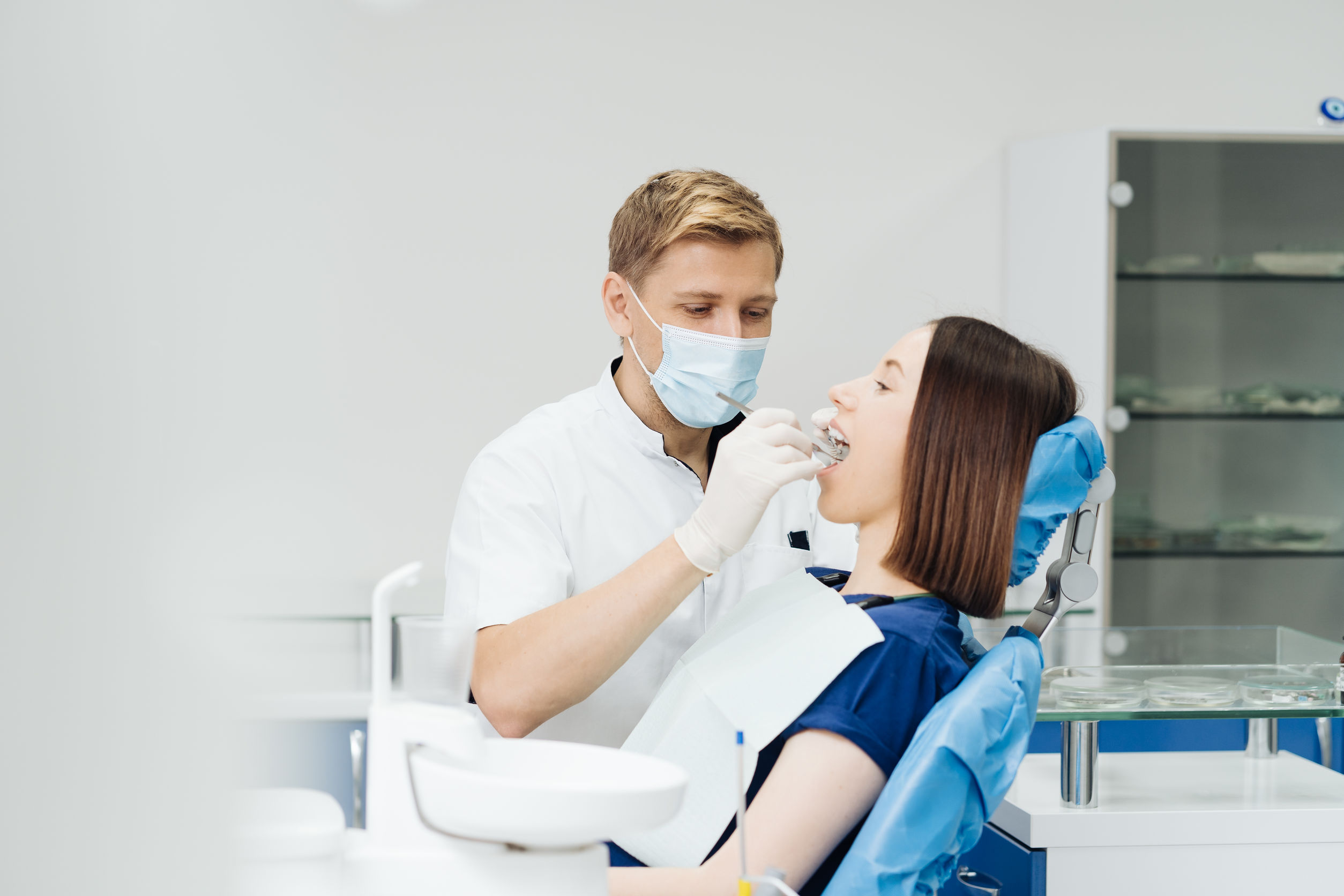Right to a healthy mouth
Globally, a shocking 550 million children are currently walking around with untreated dental cavities (caries). This is despite the fact that it is becoming increasingly clear that dental problems negatively impact our overall health. PhD student in Health Law, Dominique Mollet, recognizes how important a healthy mouth is and is pushing for the development of healthy oral habits from birth. With the support of various partners, including the Aletta Jacobs School of Public Health, she is calling for legal research to draw more attention to the topic of oral health.

Dominique Mollet is about to embark on the third year of her PhD, which is a collaboration between the European Commission’s Joint Research Centre and the Faculty of Law at the University of Groningen (UG). ‘I have always been interested in a healthy lifestyle and how you can influence your health by making good choices,’ she explains. ‘My research into the Right to Oral Health is a perfect means of exploring that interest further.’
Mollet’s focus is on what exactly the right to oral health means. ‘The concept of public health often centres around general health, and oral health tends to get forgotten. My goal is to examine questions such as what the relationship is between oral health and the right to health and what the right to oral health actually is. What rights do we have with respect to our teeth? What are the government’s human rights obligations in this area? Once that is clear, I will address the legal aspects: which laws can play a role in promoting oral health? I want to use legal research as a means of drawing more attention to oral health.’
Cavities in children’s teeth
Mollet’s research homes in specifically on cavities in children’s teeth. Globally, 550 million children are currently walking around with untreated caries. Research in the United States has shown that this often leads to a delay in these children’s overall development. She calls caries an avoidable chronic disease. ‘Sugar is the number one culprit when it comes to cavities,’ she explains. ‘For some reason, the legislation designed to curb sugar consumption always focuses on diabetes and obesity, despite the fact that dental cavities are the only health problem that have been proved beyond any shadow of a doubt to be caused by sugar. How crazy is it, then, that we’re failing to take cavities into account in our sugar legislation? My goal is to address this anomaly. We must start taking oral health into account in our sugar legislation.’
Effect on overall health
Dental problems have a negative impact on people’s overall health. A disease in your mouth can impact your entire body. ‘Infections can enter your bloodstream via your mouth,’ Mollet warns. ‘Some scientists have even linked oral health to dementia, because of cases where oral bacteria have been found in the brains of people with dementia. In some countries, children with advanced caries are treated under anaesthetic, which of course has its own risks. In the developed world, dental cavities are the most common reason that children are admitted to hospital.’
She wants to see legislation put in place that will help to prevent cavities. ‘When discussing oral health, the first thing that comes to mind is regular visits to the dentist, but that’s not the only key factor. We should also be addressing sugar intake, mouth hygiene, brushing and flossing, and using fluoride toothpaste. And yes, visiting the dentist is important too, not least because the dentist plays a preventive role as well as a curative one. But it all starts with sugars, and that’s what we so often forget.’

Sugar tax
Mollet recommends a combination of measures. ‘Imposing a tax on sugar to make sugary products significantly more expensive is one possible preventive legal measure. The only problem is that scientists are not agreed on what effect this so-called sugar tax will have. The point is that caries is caused not by how much sugar you eat but how often you eat it. In my opinion, we should be aiming for a combination of different measures. For example, measures could be put in place to restrict the advertising of sweet products, to promote alternative sweeteners and to ensure that the information on product packaging is not misleading. There are so many policy options. We just need to figure out what works and what doesn’t.’
One positive development in the Netherlands is that from 2024, there will be a tax increase on all soft drinks except for mineral water. Mollet is also pleased to note that the Netherlands has officially adopted the voluntary Nutri-Score system, a label that makes it easier to make healthy food choices. ‘My hope is that my thesis will lead to an increased legal focus on oral health, both in the Netherlands and in Europe. At present, the emphasis is on individual responsibility. It’s up to you whether you eat sugars or not. And if you’re too tired to brush your teeth at night, well, that’s your choice. We want to replace this responsibility with laws that will protect people. Laws can make a difference to your health. And good health begins with a healthy mouth.’
Aletta’s invaluable role
Dominique is extremely grateful for the opportunity to work closely with the Aletta Jacobs School of Public Health while conducting her PhD research. ‘Aletta is invaluable as a facilitator. It is a partnership between the University of Groningen, the UMCG, Hanze University of Applied Sciences, and NHL Stenden University of Applied Sciences, and as such it has opened the door for me as a PhD student to an incredibly broad network of relevant people and organizations. My promotor, Brigit Toebes, Professor of Health Law at the UG, is also the scientific director of the Aletta Jacobs School of Public Health. We recently organized an event together at which different parties from the research world and from practice took the first steps towards bringing about a more integral approach to oral health. Aletta is helping me wherever possible to promote my research so that my thesis won’t just end up in a drawer but will actually lead to new policies and laws being developed.’
Contact
More news
-
08 December 2025
Colourful Characters: Bert Röling
